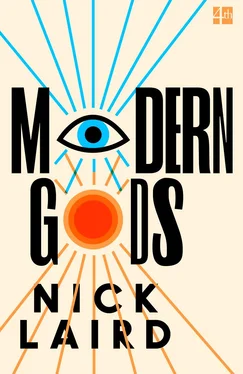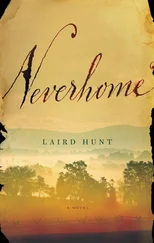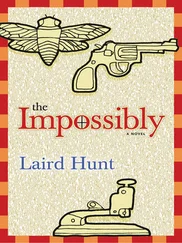It found a small but respectable publisher, Hawksmoor, within a few weeks. The advance was a modest two thousand pounds, but after a series of interviews, the book began to sell quite well. When it was taken as a Radio 4 Book of the Week, sales accelerated and they went to a fifth reprint. A week after that, the publisher forwarded an e-mail from a producer called Henry Barfoot who was interested in possibly making it a program for BBC Four. Was Liz interested in presenting?
Having taken a few months to write and rewrite, and a few weeks to shoot, and one tortuous day to add voice-over to, when it was finally broadcast at 10:00 p.m. on a Wednesday evening the Times heralded the hour-long show, The Use of Myth , as “fairly informative,” the Guardian trumpeted it as “standard BBC Four fare,” and the Telegraph lauded Liz’s presenting as “adequate, if a little stiff.” Judith had half of Ballyglass watching and was in tears on the message she left on Liz’s answerphone, telling her how proud she was. She’d even coaxed Kenneth into leaving a bluff “Well done.”
She had been writing the follow-up—attempting to do the same with Margaret Mead—for the last seven years. The book seemed to expand in every direction as she got more and more and also less and less interested in her, reading volume after volume of published work, then diaries and letters, and taking notes and underlining and stockpiling the timeline with anecdote and incident. The work had grown monstrous. She’d stopped actually putting words on the virtual page when the word count had hit 321,123, though her reasons for halting there were random and inscrutable to herself and seemed to be based solely on the palindromic, magical nature of the figure. That had happened several months ago, as she sat marking essays in the Moonlight Diner on Tenth Avenue. Now just seeing the file on her desktop gave her a singular feeling of dull terror. She was currently managing to look at the manuscript for a few minutes every couple of days before getting bored, or panicking, or getting bored of panicking. She’d follow the thread of her inattention through a maze of hyperlinks, and two hours later would know slightly more about, say, Hawking or fracking or twerking.
Alison’s voice came up from below. She was describing something as just completely pointless to her parents. Liz went down and met her younger sister at the bottom of the stairs, where they hugged and then pulled back and thought to themselves how old the other one appeared.
“You look great!” Liz said.
“I do not,” Alison countered with a wince. “I’ve been dieting for the wedding, but sure I’ve only lost seven pounds—”
“That’s not bad.”
“That short haircut really suits you—” Alison said.
“Och, it’s an old woman’s cut.”
“And you’ve lost weight.”
“Not on purpose.”
“Don’t sicken me.”
“How was your dress fitting? All ready to go?”
“Sandra’d put the zip on upside down. Can you believe it? It’s sorted now. I’m not paying her to fix it.”
Liz followed her into the kitchen.
“Is this new?”
Liz ran her finger along the top of the dining table. Alison nodded and whispered to her, “It wouldn’t be to my taste, but I can see why it’s nice.”
Kenneth’s voice arose from the armchair. “No one’s asking you to sit at it.”
Alison made a face at her sister. “Nothing’s changed.” She raised her voice: “I’m just saying it’s very dark, for my taste. For a kitchen.”
“Is it mahogany?” Liz asked.
“Yes, and extendable,” Kenneth’s voice announced.
Home was where you could spend an hour discussing any fixture or fitting or real estate question. Judith tended to praise, Alison to criticize, Kenneth to lament—the mysteries of planning permission or building regulations, the fad for Artex, the difficulty of removing stone cladding. Bay windows, rockeries, conservatories, the exotica of PVC apexes and dado rails and pelmets and the correct way to edge a lawn or instruct a repossession. They talked about crawlspaces and conversions. A rumor of subsidence or dry rot came among them with the same frisson that another family might have felt upon encountering reports of embezzlement or incest. Any house or flat or shop that entered the Mid-Ulster market fell squarely in their purview and their remit. They knew who’d built it, who’d lived in it, why it was to be sold, what they were asking, what they were hoping, what they would accept.
They talked like this because they talked in code of what they loved—not this particular extendable dining room table in mahogany but Ballyglass, continuity, sitting in judgment on one’s neighbors, and being granted membership of a family by way of all hating the same thing.
“How are the kids?”
“Mickey’s in the car. Come out with me now and we’ll wake him. Stephen said you slept the whole way.”
“I didn’t mean to … I was just—I hadn’t slept all night.”
“But did you like him?”
“I really did. We had a good chat, I mean, when I wasn’t dozing.”
“He doesn’t drink, you know, not really.”
Liz smiled sadly at this preemptive defense. The next thing she said as kindly as possible, though it didn’t stop the collapse of her sister’s face.
“Have you heard from Bill?”
“Nothing. I send photos to his mother but sure she hardly replies. I have to pinch myself to remember: These are his children! Imagine doing that.”
Atlantic padded dolefully into the kitchen doorway and stood there like she brought bad news from the front. Liz felt grateful; it saved them both from the painful act of conceiving Bill’s interior life.
She’d met her first husband, Bill, when the office was broken into and her parents were in Connemara for the weekend. Sergeant Bill Williams. It was a Protestant joke, that name: William, son of William, inheritor of sash and stick and puritanical despair. He was not handsome, but he had a nice clean freckled face and innocent blue eyes. Nor was he funny exactly, but he tried hard to be funny, and she liked that. She was twenty-six years old and absolutely ready to fall hopelessly in love. When he took her to Paris for the weekend, they stayed in a little hotel called Select near the Sorbonne, the bellboy departed, untipped, and they’d fallen on each other with an animal hunger surprising to her. But it seemed to have used up all the desire in one go. That night they’d gone out and Bill drank two bottles of the restaurant’s house white, almost by himself, and fell asleep immediately, not touching her. And that was her first clue. Didn’t stop her marrying him, but also meant she wasn’t entirely surprised by what followed. He was never physically abusive, but when he drank he said the most awful things, and it took it out of you, being told you were a whore, a fat slut, a moron, a useless fucking bitch. She started to apologize all the time, for nothing, and to everyone. If she dared mention his drinking he had a list of responses ready, usually referring to his “stress.” And did he tell her to stop stuffing chocolate down her throat? She met her future in his mother, Edna, who ran the grocery shop in Comber while Norman, Bill’s father, drank the takings. Edna had learned to refuse the world’s overtures, its silly promises, had the hardened air of the continually disappointed.
Soon enough it was a nightly thing. Collapsed by ten p.m. in the armchair. Even so, initially she managed to hide his drinking from her family pretty well. Then the first Christmas came, and with it the family lunch at Judith and Ken’s. They’d all sat down when Alison remembered the gravy. As she hoisted herself up to get it—she was six months pregnant with Isabel—and edged past Bill, he stuck a Christmas cracker out at her.
Читать дальше












